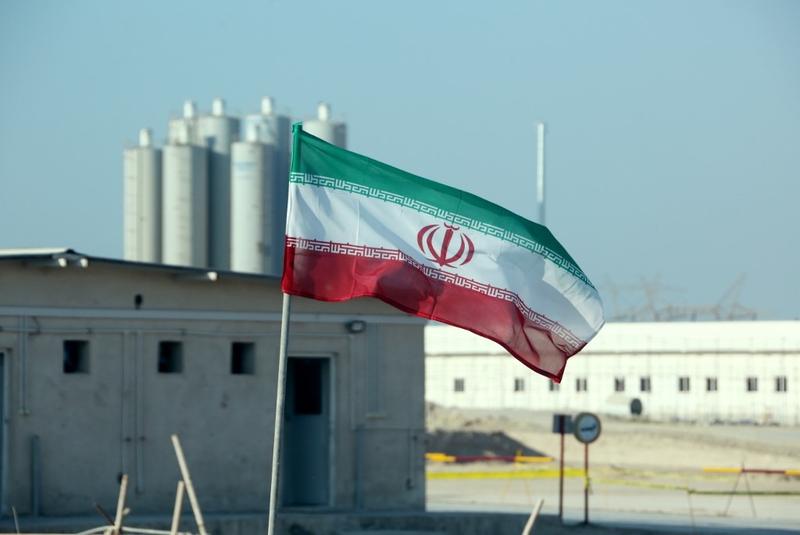 This photo taken on Nov 10, 2019 shows an Iranian flag flying at Iran's Bushehr nuclear power plant. (ATTA KENARE / AFP)
This photo taken on Nov 10, 2019 shows an Iranian flag flying at Iran's Bushehr nuclear power plant. (ATTA KENARE / AFP)
Iran’s parliament gave preliminary approval to draft legislation that could end inspections of its nuclear sites by early next year, a move that would further weaken the country’s commitment to an already fragile nuclear deal.
Inspections by international monitors would be restricted if US oil and banking sanctions aren’t lifted within three months of the bill’s approval. The proposal still requires final approval by parliament and the Guardian Council that vets laws, and voting on its provisions was underway on Tuesday.
On top of a possibility that inspections of nuclear sites would be restricted, the draft legislation would also revive the mothballed core of a contentious reactor and increase Iran’s stockpile of uranium enriched to 20 percent
In accordance with the multi-party nuclear pact struck five years ago, Iran agreed to give United Nations inspectors more intrusive access to atomic sites.
ALSO READ: Iran clarifies modalities for IAEA inspections
The draft legislation would also revive the mothballed core of a contentious reactor and increase Iran’s stockpile of uranium enriched to 20 percent, which could then be purified to weapons-grade material at short notice. That reactor could be brought online within two months, state-run IRIB News cited a spokesman for the Atomic Energy Organization of Iran, Behrouz Kamalvandi, as saying on Tuesday.
Iran has already breached limits in the nuclear pact to protest at a US withdrawal from the accord two years ago. The maximum fissile purity to which it has enriched uranium has remained around 4.5 percent, above the deal’s 3.67 percent cap but below the 20 percent Iran has achieved before and the 90 percent required for a nuclear bomb.
The nuclear deal has been moribund since US President Donald Trump withdrew and began reimposing crippling sanctions on Iran. Its fate became even murkier on Friday after a top Iranian nuclear scientist was assassinated in an attack Iran has blamed on Israel.
READ MORE: Iran official accuses Israel of assassinating top nuke scientist
Top Iranian political and military officials have vowed revenge, but others signaled support for talks with the incoming administration of US President-elect Joe Biden. He has said he aims to rejoin the agreement, provided Iran returns to the full compliance it abandoned in response to the US withdrawal.
The legislation preliminarily approved Tuesday was first proposed in early November as a signal to the US ahead of its presidential election, but the conservative-majority parliament fast-tracked it following Friday’s assassination.
Foreign Ministry spokesman Saeed Khatibzadeh came out against the bill on Tuesday, saying it “isn’t reflective” of the ministry’s positions and is “neither necessary nor helpful.”


